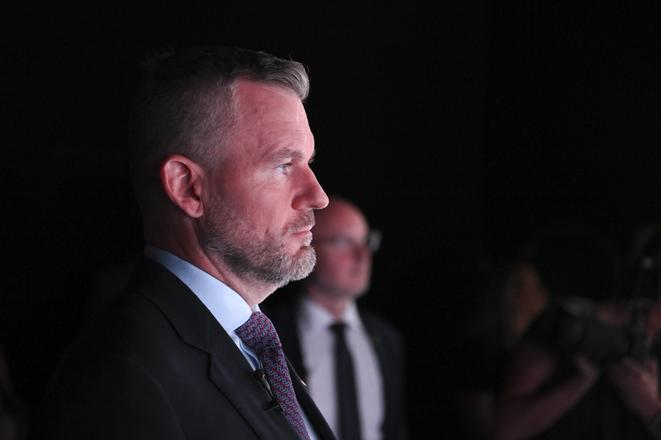Welcome to your weekly commentary and overview of news from Slovakia, the first one of 2024. Thank you for being my readers: your interest in the Last Week in Slovakia newsletter means a lot to me. I wish you a good year full of joyful moments and pleasant surprises.
If you have a suggestion on how to make this overview better, let me know at michaela.terenzani@spectator.sk.
In last week’s headlines: The presidential election is nearing, but citizens are still in the dark regarding candidates. Overall satisfaction with life is high in Slovakia. A Slovak who worked for the BBC was a spy for the communist government, a British daily reports.
Presidential election nears, and it matters
The government of Robert Fico is still settling into its role (which, most of the time, has not been a very pretty sight) since taking office in the autumn. Fico’s return to power has not gone unnoticed internationally, amid concerns about what a government led by him would mean for the foreign policy of a country that neighbours Ukraine, where the war continues after two grinding years of constant Russian aggression.
Now, another election looms in Slovakia, but it is regarded with much less urgency and zero international attention. This spring, in just a few weeks’ time, Slovakia’s citizens will take to the polling stations to elect a new president, after Zuzana Čaputová decided last year that she did not intend to run for a second term. It may not seem like such a groundbreaking event, especially given the president’s limited powers within Slovakia’s parliamentary system, where the most powerful person in the state is effectively the prime minister.
Why the presidential election matters
While the powers of the president are limited, they are not insignificant. The most obvious example is the presidential veto, exercised recently by President Čaputová when she refused to sign into a law an amendment to the Competence Act which would not only establish a new ministry (of sports and tourism, as requested by the Slovak National Party (SNS), which will control the new ministry) but also weaken the power of independent authorities and regulators in Slovakia. She is expected to wield her veto again if the government presses on with its plan to scrap the Special Prosecutor’s Office. The parliamentary opposition and a large portion of civil society oppose the abolition and have been protesting the plan in the streets in an effort to at least delay it.
In other words, the Presidential Palace is not meant as a decorative element, but rather an important cog in the system of checks and balances. The senior coalition party, Smer, and its coalition partners would find it extremely helpful to have an acquiescent president like Ivan Gašparovič, who during his 10 years as head of state (2004-2014) almost never took a dissenting position towards Smer-led governments.
This is very likely going to be a key campaign theme for the one candidate that we know for sure is running and who has a fair chance of making it to the palace: Ivan Korčok, a seasoned diplomat who demonstrated on many occasions during his time as foreign minister that he was not shy about calling out what he saw as misconduct by Robert Fico and even his own prime minister, Igor Matovič.


 Hlas chair Peter Pellegrini as pictured before one of the first post-election TV debate on October 1, 2023. (source: TASR - Jaroslav Novák)
Hlas chair Peter Pellegrini as pictured before one of the first post-election TV debate on October 1, 2023. (source: TASR - Jaroslav Novák)